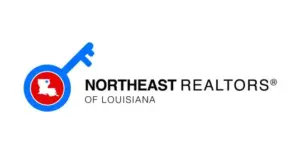As we move into 2025, the lead-generation landscape is being reshaped by emerging technologies, shifting consumer behaviors, and innovative marketing channels.
This comprehensive guide explores 100 proven and forward-thinking lead-generation strategies tailored specifically for real estate professionals in 2025.
From digital tools and social media tactics to offline approaches and community engagement ideas, this list is designed to help you attract, nurture, and convert leads more effectively than ever before.
1. Develop a High-Performance Real Estate Website
Your website serves as the cornerstone of your digital presence, so it must be visually appealing and load quickly across all devices. Incorporate an easy-to-use property search feature, along with compelling calls to action such as “Find Out Your Home’s Worth” or “Book a Tour Now.”
Think of your site as a round-the-clock sales assistant, always ready to showcase properties and strengthen your professional credibility. Ensure that you organize content by categories, such as residential, rental, and commercial properties. Add short lead-capture forms or live chat boxes to each page to help convert curious visitors into serious prospects.
2. Increase Your Google Visibility with Local SEO
To attract more targeted traffic, it’s essential to rank high in local search results. Use key phrases such as “real estate agent in [City]” throughout your web content and blog posts to optimize your online presence. Create dedicated pages for different neighborhoods that include information about schools, parks, and local market trends.
Implementing schema markup enables Google to display property details, such as the number of bedrooms, square footage, and pricing directly in the search results. Strong local SEO efforts yield free, highly motivated leads.
3. Perfect Your Google Business Profile
Take ownership of your Google Business Profile and fill in all relevant details, including service areas, specialties, business hours, and contact information. Ask happy clients to leave reviews and respond to each one, whether it’s glowing or critical, with a professional tone.
Keep your profile active by sharing short updates on new listings or market changes. A well-managed profile boosts your presence in both Google Search and Google Maps results.
4. Prioritize Mobile-Friendly Design
Since a large majority of property searches now happen on smartphones, your website needs to be fully optimized for mobile users. Pages should adjust seamlessly, buttons should be easy to tap with your thumb, and forms must work without any hiccups.
Google rewards mobile-optimized websites with higher rankings, so a great mobile experience also helps you climb the search engine ladder.
5. Share Listings on Major Real Estate Platforms
Get your listings in front of more eyes by distributing them on major platforms like Zillow, Realtor.com, Redfin, Trulia through services like ListHub or your local Multiple Listing Service (MLS) feeds. Always include high-resolution images, accurate property descriptions, and immersive virtual tours to enhance the viewing experience. Listings that are complete and rich with media consistently attract more views and generate more inquiries.
6. Build a Strong Online Reputation
Keep a close eye on your reviews across popular platforms like Google, Zillow, Facebook, and Yelp. After a successful closing, send a personalized link to clients, encouraging them to leave feedback. Highlight your best testimonials prominently on your website to build trust with future clients.
If you receive a negative review, respond respectfully and professionally. Demonstrating accountability builds credibility, a steady stream of five-star reviews functions as modern-day word-of-mouth marketing.
7. Start a Real Estate Blog
Write blog posts on timely and relevant topics such as “2025 Housing Trends in [City]” or “Top Mistakes First-Time Homebuyers Make.” Use hyper-local keywords, such as “Downtown Toronto condo market,” to capture local search traffic.
Also, include lead magnets, such as a downloadable buyer’s guide, to collect email addresses and build your contact list.
8. Share Monthly Market Reports and Homeowner Guides
Consistently post a monthly “State of the Market” update that summarizes sales stats, price changes, and your expert analysis. Provide downloadable tools, such as the “Ultimate Home-Selling Checklist,” in exchange for basic contact information.
9. Leverage Video to Create Authentic Connections
Produce captivating videos featuring home walkthroughs, neighborhood explorations, or brief Q&A sessions. Share these on YouTube, Instagram, and Facebook. Listings enhanced with video content tend to receive more attention while appearing on camera helps you build familiarity and trust with potential clients.
10. Incorporate 3D Tours and Virtual Staging.
Use platforms like Matterport to design immersive 3D tours that give buyers the ability to “walk through” a home virtually. Virtual staging tools allow you to furnish empty spaces without the expense of physical staging. Embracing this tech demonstrates that you’re a forward-thinking agent focused on delivering modern, practical solutions for your sellers.
11. Host Webinars and Virtual Events
Organize informative Zoom sessions such as “First-Time Buyer 101” and promote them through your social media channels. Encourage sign-ups to collect contact information, respond to audience questions live, and later upload the recording to YouTube or embed it on your blog. A single well-executed webinar can generate a steady stream of leads for months.
12. Offer Free Downloadable Resources
Share valuable downloadable content, like home-buying checklists, neighborhood guides, or moving timelines, as lead magnets. Require users to submit a simple email form before gaining access, then follow up with an automated drip email campaign. These high-quality resources position you as an expert and a go-to source for real estate guidance.
13. Build a Strong Local Presence on Facebook
Keep your Facebook Business Page active with regular updates. Post new listings, share local market insights, and spotlight community events. Use Facebook Live for virtual open houses or casual Q&A sessions and join local Facebook groups where you can offer helpful advice and insights without pushing sales.
14. Highlight Lifestyle and Local Flavor on Instagram
Utilize Instagram to showcase your listings, local landmarks, and behind-the-scenes glimpses of your daily real estate life. Engage your audience with a mix of photo posts, Reels, and Stories to capture their attention. Also, use local hashtags, such as #DenverRealEstate, and geotags to connect with nearby followers. Consistent posting fosters trust and helps you build a younger, loyal following.
15. Network with Industry Professionals on LinkedIn

Polish your LinkedIn profile with a clear, descriptive headline, such as “Commercial Broker | Office & Retail | Vancouver” and share insights about market trends and industry news to establish yourself as an expert.
Connect with relocation specialists, corporate HR teams, and attorneys who may refer clients to you. Engaging posts and thoughtful participation in groups help keep you visible. Consider running LinkedIn Ads if you’re targeting higher-end or commercial opportunities.
16. Utilize TikTok and Short-Form Video Content
Create quick, engaging clips like “3 Tips Before Buying in 2025” using popular audio tracks on TikTok. Share snippets of home renovations, short property tours, or behind-the-scenes moments from your day. Make sure to reply to comments to build a sense of community and expand your reach organically.
17. Educate Buyers and Sellers Through YouTube
Develop in-depth videos that explore topics such as “Pros and Cons of Living in [City]” or “Five Common Mortgage Myths Debunked.” Optimize your YouTube video titles and descriptions with relevant search terms to prompt viewers to book a consultation and engage by responding thoughtfully to comments under your videos.
18. Get Involved on Local Online Platforms
Register on platforms like Nextdoor, relevant Reddit threads, or hyper-local forums. Share helpful and honest insights about topics such as school quality, home prices, or market timing. Avoid overt sales language, your goal is to be recognized as the helpful neighborhood expert. You might also consider hosting real-time conversations via Clubhouse or X Spaces (formerly Twitter Spaces).
19. Partner with Local Influencers
Collaborate with trusted community influencers such as local bloggers, photographers, or popular food reviewers. Invite them to tour listings or spotlight emerging neighborhoods. These partnerships mainly when transparently tagged as sponsored (#ad) can expose your business to fresh, targeted audiences.
20. Use Google Ads to Capture High-Intent Leads
Launch pay-per-click campaigns using Google Ads focused on phrases like “homes for sale in [City].” Guide visitors to a conversion-optimized landing page perhaps offering a curated home list in exchange for an email address. Regularly track your cost-per-lead and refine your bidding strategy to get the best possible return on investment.
21. Reach Local Audiences with Facebook and Instagram Ads
Use Facebook Ads Manager to create visually compelling ads that highlight your listings, provide market insights, or offer free home valuations. Since the platform also manages Instagram ads, you can target users across both networks simultaneously.
Utilize lead-form ads that allow users to submit their contact details without ever leaving the app this frictionless process often results in higher conversion rates.
22. Stay Visible Through Retargeting Campaigns
Install the Meta Pixel and Google Ads remarketing tag on your website to serve ads specifically to previous visitors. Follow up with content such as client video testimonials, free homebuyer guides, or invitations for a consultation. Retargeting is highly effective because it focuses on “warm” audiences who have already shown interest in your listings.
23. Buy Leads from Reputable Lead Generation Services
Invest in well-established lead services, such as Zillow Premier Agent, Realtor.com Leads, BoomTown or Market Leader. Prompt follow-up is essential contact leads within minutes and maintain consistent communication through email, phone, and text campaigns. Keep a close eye on your cost-per-conversion to ensure your return on investment (ROI) remains strong.
24. Optimize Your Profiles on Real Estate Portals
Even if you’re not paying for ads, ensure that your agent profiles are complete and professional on major platforms, such as Zillow, Trulia, Redfin, Homes.com, HomeLight, and Realtor.ca (for Canadian agents). Include a current headshot, a strong bio, and a detailed sales history. These well-maintained profiles can organically generate valuable leads over time.
25. Join Referral and Relocation Networks
Enroll in trusted programs like HomeLight, or Rocket Homes relocation services. These networks only charge a referral fee when a transaction is closed, making them a low-risk, high-reward source of serious buyer and seller leads. Timely responses help you stand out from the competition and win more deals.
26. Run Ads on Niche or Less Saturated Platforms
Broaden your advertising reach by targeting less crowded digital spaces. Consider using LinkedIn Ads for commercial real estate opportunities, YouTube Ads to reach first-time homebuyers, or Waze Ads to target drivers near your listings. These specialized platforms often have less competition, allowing your message to stand out and achieve better visibility.
27. Send Valuable and Engaging Email Newsletters
Build your email list through sign-ups on your website and in-person networking. Then, deliver informative newsletters on a monthly or bi-monthly basis. Include fresh listings, local market trends, and seasonal home tips.
Use email marketing platforms like Mailchimp, Constant Contact, or ActiveCampaign to track engagement metrics and automate your delivery process.
28. Use Automated Drip Campaigns to Stay Top of Mind
Set up automated sequences of pre-written emails that trigger when someone joins your mailing list. Begin with a warm welcome message, then follow up with helpful content, such as new listings, frequently asked questions and market insights. Drip campaigns help you stay connected without requiring ongoing manual effort keeping leads warm until they’re ready to take the next step.
29. Segment and Personalize Your Email Outreach
Organize your contacts into categories like buyers, sellers, investors, or past clients. Tailor your email content based on what each group is likely to care about. Use personalized subject lines and include neighborhood-specific references to increase your open and engagement rates.
30. Use Text Messaging to Get Fast Responses
Text messages have some of the highest open rates in digital marketing. Leverage real estate CRMs like Follow Up Boss or LionDesk to send short, timely updates about new listings or follow-ups. Keep the tone friendly and authentic thoughtful, concise texts can move a lead from interested to committed much more quickly.
Click here to read Part 2
Click here to read Part 3






